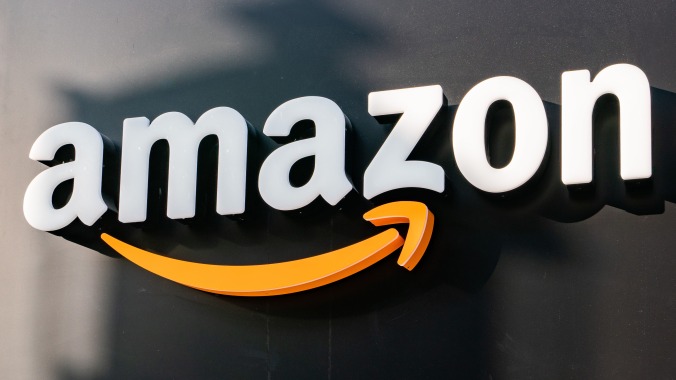And now, a tale from the spooooOOOOOooooky world of corporate content ownership and the inherent transience of digital media: THR reported earlier this week on a new (but also very old) legal argument trotted out by Amazon of late, reminding people who “buy” movies or TV shows from its Prime Video service that they’re actually buying a license to view said content, subject to availability that’s completely at Amazon’s discretion. (Or, to put it another way: You don’t “own” jack shit, friend.)
Said jack-shit-based argument came up this week because of an ongoing legal case from back in April, when Amazon was sued by a woman named Amanda Caudel on claims of unfair competition and false advertising by the company because of its ability to make unavailable content that had been paid for through the Prime Video service. Among other things, Caudel’s suit alleges that the company “secretly reserves the right” to pull content despite people having paid for it. To which Amazon basically replied, “Who said anything about ‘secretly’?”
Amazon’s lawyers filed a motion to dismiss Caudel’s suit on Monday, explaining that, hey, she agreed to all this when she signed the Terms Of Use; specifically, that “These Terms of Use expressly state that purchasers obtain only a limited license to view video content and that purchased content may become unavailable due to provider license restriction or other reasons.” (Good ol’ “other reasons.”) The motion also notes, rather pettily, that none of the stuff that Caudel has ever paid for from Amazon has been taken off the service, so why is she even complaining?
But mostly the argument here appears to be, “Hey, we told you we were screwing you before we screwed you, and you totally said it was okay.” (Anyone who’s gotten deep into the world of video games over the last 20 or so years, where digital “ownership” of content has become borderline mandatory, will likely be familiar with these arguments.) The U.S. District Court in California has yet to rule on Amazon’s motion to dismiss; meanwhile, we’d like to take this moment to offer up a gentle reminder that physical media does, in fact, still exist, and might be worth investing in for anything you really couldn’t bear to lose.

 Keep scrolling for more great stories.
Keep scrolling for more great stories.
